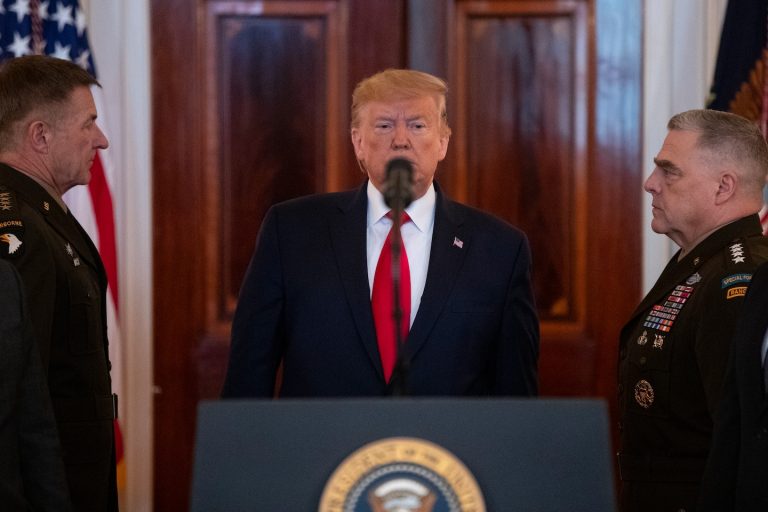This month, Iranian-backed militias struck an American outpost in Jordan, killing three American soldiers. President Biden said he had decided how the United States would respond but did not reveal further information. National Security Council spokesman John Kirby said on Wednesday that the US response “will not be a one-time thing.”
It seems that the United States and Iran – then and now – do not want a broader war, as the Middle East lives in a state of tension and anxiety amid the war that Israel is waging in Gaza. But a series of attacks, mutual strikes and skirmishes initiated by armed groups from Lebanon to Yemen have raised concerns that the broader conflict could embroil the region.
The 2020 attacks on Al-Asad Air Base and another facility in Erbil raised fears that the United States, under the often erratic Trump administration, would respond with actions that could ignite a lasting conflict. After Soleimani's killing, President Donald Trump warned that any Iranian response would be met with a strong response from the United States. he books He wrote on Twitter that he had identified 52 targets in Iran, including cultural sites, which would be “very fast and very difficult.”
But even as Trump made fiery threats, his administration was trying to avoid retaliation from Iran that could have spiraled out of control. The Wall Street Journal reported that the United States sent letters in the days following the assassination to Iran, through the Swiss embassy in Tehran, urging it not to escalate matters further.
The back channel messaging seems to have worked.
“Iran appears to be backing down, which is a good thing for all concerned and a very good thing for the world,” Trump said in a speech at the time. Trump also imposed additional sanctions on the Iranian economy, a non-military tactic followed by several recent administrations.
Mohammad Javad Zarif, then Iranian Foreign Minister, wrote that “Iran has taken and completed proportionate measures in self-defense,” referring to retaliatory strikes launched by Iran on US facilities in Iraq. He added: “We do not seek escalation or war, but we will defend ourselves against any aggression.”
As fears of war faded, Trump considered the assassination of Soleimani a victory, but he did not follow it up with a broader military or economic strategy, which the United States has not pursued since the Reagan administration, said Alex Vatanka, the mission director. Iran Program at the Middle East Institute, a Washington-based think tank.
The question today is: Has Iran backed down? Vatanka said of the four years that followed. He pointed out that Iran has maintained the pillars of its belief in the necessity of removing the United States from the Middle East and the non-existence of the State of Israel.
It was not clear whether the Biden administration was seeking similar back-channel contacts with Iran; There are no diplomatic relations between the two countries, which complicates the secret dialogue. Kirby, the National Security Council spokesman, said Wednesday that he “does not have any private contacts with Iran to speak with.”
Vatanka said the situation in 2020 was also different: a sharp escalation in hostilities after the surprise assassination, versus a sustained rhythm of attacks by Iranian-backed groups under Biden's watch. He added that Iran “has never been this close to knowingly pushing an American president with his eyes wide open into a conflict.”
On Wednesday, Iranian Maj. Gen. Hossein Salami, commander of Iran's Islamic Revolutionary Guard Corps, appeared to shy away from further escalation. “We do not seek war, but we are not afraid of it either,” he said, according to the state-run Islamic Republic News Agency. “We are not warmongers, but we are defending ourselves and our glory.”
It remains to be seen how Biden will respond to the killing of the three American soldiers. Administration officials have indicated in recent days that the US response will be continuous, rather than a single strike.
The United States said on Wednesday that the Islamic Resistance in Iraq, an umbrella group of militias that includes the Kataib Hezbollah group, was responsible for the attack in Jordan. Kataib Hezbollah retreated this week, a move reportedly ordered by Iran, which analysts say is seeking to distance itself from the attack.
“We are not looking for a broader conflict,” Kirby said on Wednesday. “We do not seek war with Iran”
Iran, for its part, likely does not want to anger the United States further, “because they know the outcome of that,” Vatanka said.
Susanna George in Dubai contributed to this report.

